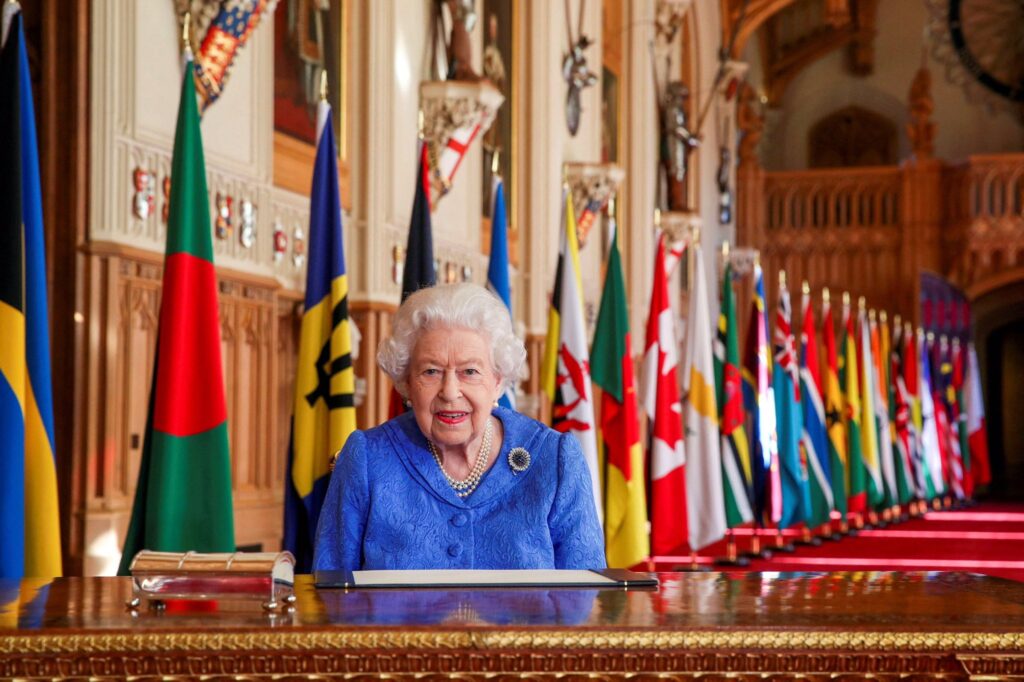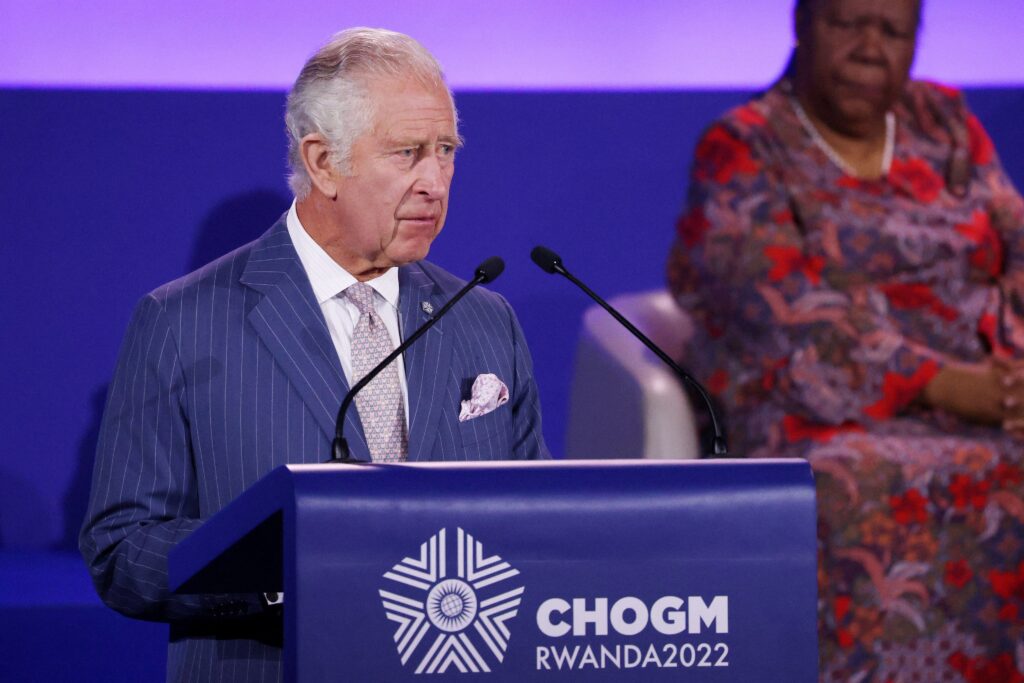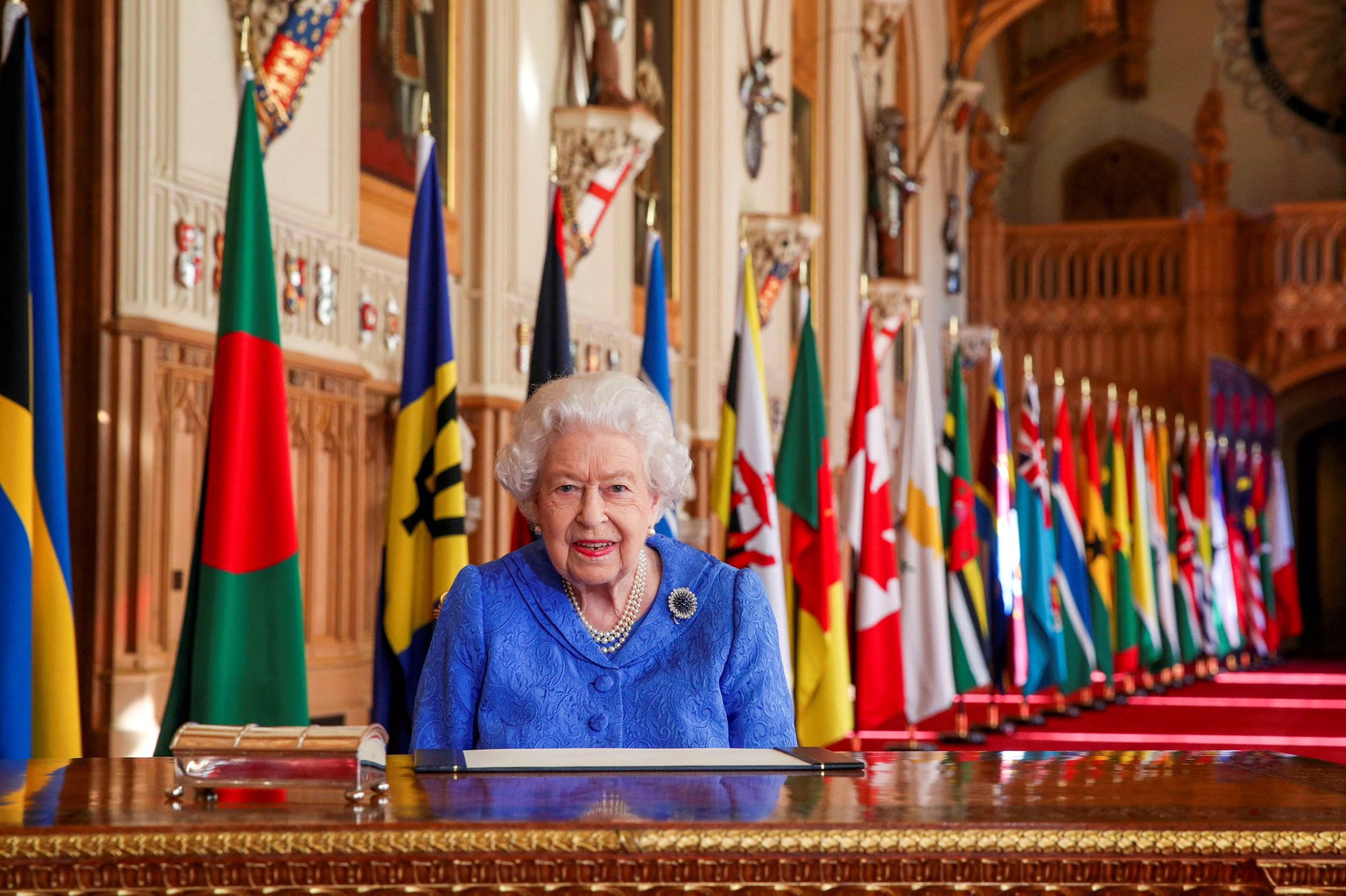As the recently departed Queen Elizabeth II ascended the throne on her Coronation Day on June 2nd 1953, she spoke memorably of the living strength of the Commonwealth, as well as of “societies old and new; of lands and races different in history and origins but all, by God’s Will, united in spirit and aim.”
Now King Charles III, her eldest son at 73 years of age, faces the history-defining challenge of keeping the Commonwealth as one when it seems that it will take considerably more than a divine decree to keep it united.
In the week when it was announced that King Charles will host South Africa’s president for the first state visit of his reign, National Security News presents the first of a four part series looking at the future of the Commonwealth and what threatens it.
Part I, authored by NSN’s regular contributors Mark Toth, Jon Sweet and Alan Jenkins, looks at the rise of Republicanism across the 15 Commonwealth realms, the increasing and dark influence of China in its growth, and the rocky path that lies ahead.

Under the dark, leaden skies of a sombre September evening in London, Queen Elizabeth II returned for one final night in the Bow Room of Buckingham Palace before lying in state at Westminster Hall. Long-gathering clouds loomed overhead, heralding not only profound national mourning of a much beloved monarch, but the emergence of Beijing as a Jacobite-like subversive pretender, if not, would-be vanquisher of The Commonwealth of Nations.
King Charles III is now the 62nd monarch of the United Kingdom of Great Britain and Northern Ireland, since Ecgberht, King of Wessex established the English Crown in 825 – defeating Beornwulf, King of Mercia in the fields of Salisbury Plains in the Battle of Ellandun. The new sovereign is now also the titular third Head of the 56-nation Commonwealth, a diverse economic and cultural union of countries comprised chiefly of former English colonies and military strongholds spanning the four corners of the globe.
As King Charles begins his reign, the Commonwealth – Queen Elizabeth’s crowning global legacy – with its headquarters and secretariat in London, is under siege by competing sociopolitical, economic, and military forces. Globally, autocracy is at war with western democracy, and the gravitational pulls and competing demands between London and Beijing are increasing in intensity and threatening to subvert, if not destroy, the ideological bedrock of the loose alliance of Commonwealth nations.
Battered by mounting republicanism and vast economic disparity, the Commonwealth is facing an uncertain, if not altogether ‘uncommon’ future. The core ‘uniting’ principles and ideals of the Commonwealth Charter – liberty, democracy, peace, and prosperity – no longer fully match the economic, political, or military realities of many of its member states. China, long aware of this deepening divide, is nakedly and systematically exploiting these mounting fissures as a focal part of Beijing’s push to establish itself as the preeminent global superpower.
Time waits for no one. Not even for a fallen Queen.
Nor is Chinese President Xi Jinping waiting.
Pragmatically, if not shrewdly, Xi is positioning himself as Queen Elizabeth’s effective successor as head of the African and Asian members of the Commonwealth – and displacing King Charles in the process. Xi’s goal in subverting or preferably, from Beijing’s vantage point, subsuming the Commonwealth is a means to two strategic ends: weakening the UK economically and by weakening the UK, inching closer to surpassing the US – London’s most indispensable ally in preeminence.
British history, consequently, is echoing itself and the repercussions potentially could be even more far-reaching than that of the Battle of Culloden in 1746: the last major field battle fought on British soil. This time, however, it is not Bonnie Prince Charlie attempting to seize by military force George II’s throne for the Jacobites – it is Xi who is manoeuvering to be the would-be pretender by wielding economic bribery backed by increasing military power to sway weaker countries to their side.
Life comes at world leaders fast – and even faster when, in less than the span of a week, the UK fielded a new King and a new Prime Minister. Faster still given momentous global events. The war in Ukraine, Russian President Vladimir Putin’s strategy to weaponise winter, looming winter energy shortages in Europe, the UK’s highest Consumer Prices Index rate – 8.8% in July – since December 1990 – and sterling and euro currency exchange rate volatility.
British Prime Minister Liz Truss’ initial challenges in terms of the Commonwealth, however, will be to slow world events down, prioritise objectives, and not lose sight of Beijing’s ongoing designs on the alliance – and by extension King Charles. Truss must also evaluate which cards to play or not and like in pinochle or bridge, rally and lead her teammates behind a winning strategy – especially Washington and Brussels.
Xi’s opening cards have already been played. One in particular – republicanism – offers Truss a unique opportunity to trump Beijing. If Truss is willing to employ the ‘republican card’ in following through on her July commitment to lobby for a new and innovative “Commonwealth deal” alongside her pledge to “ensure the Commonwealth sits at the heart of my plans for global Britain,” then she likely could achieve three goals. Blocking Beijing, strengthening and preserving the 56-member alliance for another 70 years – and securing, if not broadening King Charles’ symbolic position as Head of the Commonwealth.
Proactively embracing republicanism in the realms would not be without political controversy – nor paradoxically, without public ambivalence in some sectors. In March 2022, a YouGov survey indicated overall UK adult indifference to the Commonwealth. 34% believed the alliance should continue as is, 30% said it should not, and 37% did not know. Divided public sentiment likely will make it difficult for Truss to task overhauling the alliance as a top Foreign Office priority – and a daunting challenge for newly appointed James Cleverly, Secretary of State for Foreign, Commonwealth, and Development Affairs.
Queen Elizabeth, however, was always intrepid in seizing upon this type of opportunity for transformative change – fundamentally altering her role, as needed, for the monarchy to continue to survive. Now, King Charles and Truss must decide if they too are willing to be equally as bold and adaptive, and in doing so, undertake a dynamic effort to transform and preserve the Commonwealth as a democratic bulwark against autocracy. Nothing, likely, save domestic opposition to it, is to be gained by seeking to hold back this tide of republicanism, as it is only a matter of time before most of the realms, if not all, seek independence.

Lord Richard Dannatt, former head of the British army, presciently penned in National Security News, that King Charles must be prepared for this new Commonwealth challenge as “people debate the level of their desire for possible constitutional change” and, “maintain the golden thread to the past as it rolls forward to an ever-changing future.”
Truss must carefully consider how the UK and the Commonwealth are best-served going forward together and whether to embrace, if not encourage, republicanism abroad – just as US President Harry Truman similarly did in 1946, ending the US’ era of New Imperialism by granting independence to the Philippines.
Beijing and Moscow are envisioning a vastly different world – and an altogether different autocratic definition of democracy. In December 2021, Xi’s State Council Information Office issued a white paper entitled, China: Democracy That Works, wherein the concept of the Chinese Communist Party’s (CPC) “Whole-Process People’s Democracy” was introduced. Essentially – and perversely from a western perspective – the ‘people’ are “the masters of the country,” but the CPC is the ‘master’ of the ‘people.’
Circular logic notwithstanding, Xi’s white paper fully endorses the mixed metaphor notion of a “People’s Democratic Dictatorship,” while arguing “dictatorship serves democracy.” In reality, however, it is undemocratic autocracy plain and simple, wherein rubber-stamped democracy – as recently witnessed in Putin’s sham referenda in Ukraine – solely serves dictatorship.
Confronted by Xi and Putin’s aberrant autocratic definition of a multipolar world and Beijing’s willingness to fund republicanism in support of it, Truss must also consider whether it is anachronistic, if not, incongruous for King Charles as the nominal head of the Commonwealth to concurrently be the sovereign of 14 of the alliance’s member states. In doing so, Truss must also weigh whether encouraging republicanism in the realms, especially in the Caribbean, is the steadiest way to ensure the Atlantic Charter’s original vision of democracy and freedom prevails over Xi’s ‘democratic dictatorship’ going forward.
42 out of 56 nations[1] are sovereign peers. King Charles’ realms are not – including Canada in North America, Antigua and Barbuda, The Bahamas, Belize, Grenada, Jamaica, Saint Kitts and Nevis, Saint Lucia, Saint Vincent, and the Grenadines in the Caribbean, and Australia, New Zealand, Solomon Islands, and Tuvalu in the Pacific.
King Charles tacitly understands this paradox and the challenges it will present during his reign. Earlier in June, while addressing the Commonwealth Heads of Government Meeting (CHOGM) in Rwanda in his former role as Prince of Wales, standing in for his mother, he stressed, “that each member’s constitutional arrangement, as republic or monarchy, is purely a matter for each member country to decide.” What is not yet clear is whether King Charles sees a vital role for the Commonwealth going forward, other than simply ‘striving’ to “hold the club together.” Any unifying purpose is notably absent.
Embracing republicanism would be politically risky for Truss – and her Conservative Party, long-connected to the monarchy as avowed Unionists. British monarchists, likely, view growing republicanism in some corners of the Commonwealth as an existential threat to the Royal family and the Crown in the UK. Yet, in a post-colonial world, they are no longer connected. The survival of the former in the UK, does not rely on the latter, whereas Truss must determine whether or not the survival of the Commonwealth and western democracy relies upon King Charles’ realms becoming sovereign and fully independent nations.
Republicanism, as it is, is afoot in each realm. The Prime Minister of Antigua and Barbuda Gaston Brown announced his country would hold a referendum in three years, noting, it is time “to complete that circle of independence, to ensure that we are a truly sovereign nation.” Other Caribbean nations are equally intent on following Barbados, a republic since November 2021. Earlier in March, Jamaica’s Prime Minister Andrew Holness told Prince William and Princess Catherine in person, that Jamaica was aiming to “fulfill our true ambitions and destiny as an independent, developed, prosperous country.”
In June, newly elected Australian Prime Minister Anthony Albanese fired his own republican warning shot that he and his Labour Party are steadfastly resolute that Australia will become a republic. During a lighting ceremony celebrating Queen Elizabeth’s Platinum Jubilee, Albanese declared Canberra’s connection to London was now one of “equals” and no longer one of “parent and upstart.”
None of this is new. In 2018, there already was unease and considerable debate among Commonwealth member states over who would succeed Queen Elizabeth and whether it would be King Charles. Ultimately, after much diplomatic wrangling, his succession was agreed to at the CHOGM.
In the military, there is a doctrinal notion of only fighting the fights you need to achieve objectives – and only those that contribute to the winning of the war. Downing Street must now evaluate how best to win the republican battle Xi is waging as part of his greater war against King Charles and the Commonwealth. Change, as Lord Dannatt noted in National Security News, is always upon us – as it was for Queen Elizabeth.
Fighting or prolonging a losing cause will only profit Beijing and play into Xi’s greater designs and machinations to subvert, if not subsume, the Commonwealth. Far larger existential threats to the alliance and the UK are in play. China is aggressively buying up the Commonwealth while gradually enveloping it with a global military footprint.
Unquestionably, King Charles’ 14 remaining Commonwealth realms are historically significant to England, Scotland, Wales, Northern Ireland and their citizens. However, the alliance in totality is far more important to the future economic and military security of the UK, and Truss must decide whether a partnership of republican equals would constructively aid in forestalling, if not defeating, a hostile Chinese takeover.
[1] Five Commonwealth member states are monarchies: Lesotho, Eswatini, Brunei, Darussalam, Malaysia, and Tonga – in addition to the UK






















































































































































































































